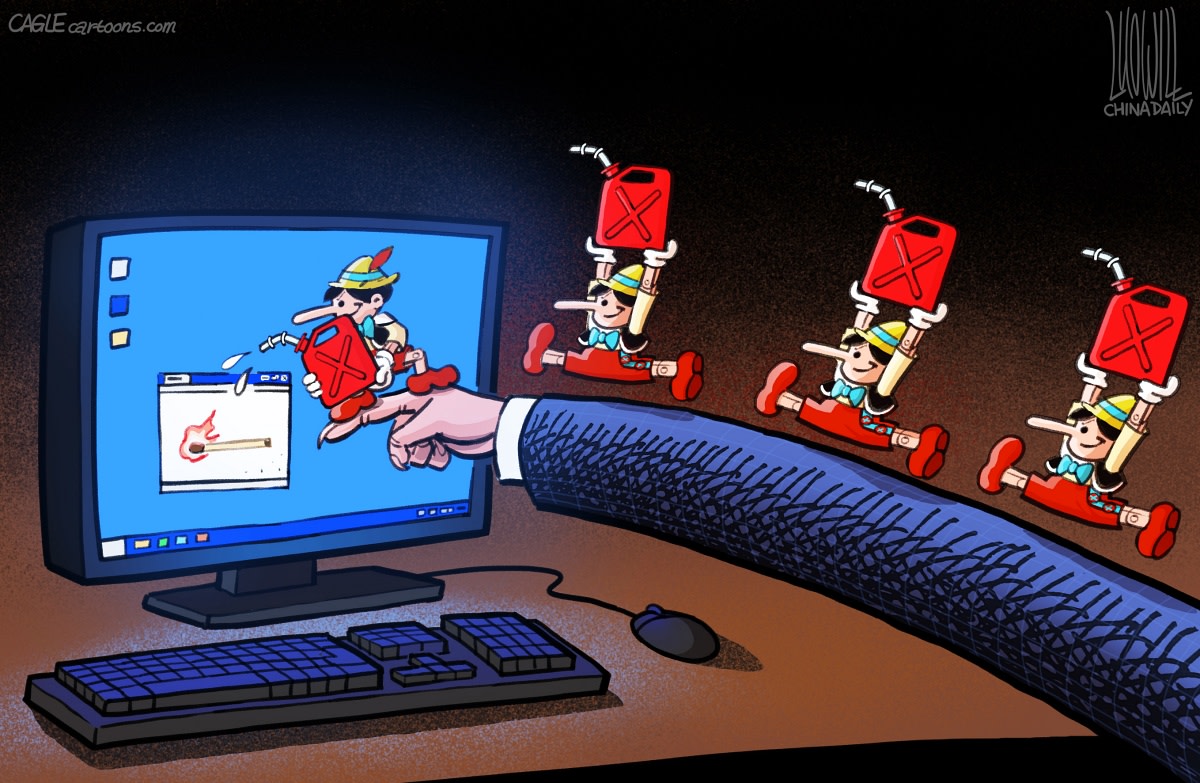Kephalos
J.M.P.P. R.I.P. B5: RLOAI
- Joined
- Mar 2, 2009
- Messages
- 729
- MBTI Type
- INFJ
- Enneagram
- 5w4
The argument is quite simple: you cannot expect social media platforms to stop misinformation or to regulate misinformation and extremism by themselves because there is simply too much money at stake for them. You cannot rely on public outcry. Public outcry will not always be forthcoming. Public outcry is capricious. Public outcry does not apply uniformly in all cases where it might have been needed. Public outcry might be wrong when the public has ideas that might be wrong.

 www.nytimes.com
www.nytimes.com
You need public rules (so that every single relevant actor knows) that are applied all the time and in every case and applied against anyone (anyone). This means legislation (whatever might be necessary all the way up to the Constitution and all the way down to any law that might need to be changed in whatever way). You need regulations and a permanent body that makes or validates rules and procedures, and that oversees and enforces their application. That is the way you can create accountability that respects the rule of law: accountability all the way from the individual person (or network of people) that spreads misinformation, to the platforms, to the holding companies, and also to the servers that host social media platforms. You need access to all the relevant information, whatever that might be. You need technical experts (independent technical experts) that are at least as good as the experts that work at these companies to double and triple check every single thing the companies claim. You need sanctions that are sufficient and the power to apply them. And, finally, you need to isolate all of this from any financial consideration the social media companies might have, from any consideration at all from anyone that is not compatible with the public good.
Once you have a system of rules that is applied, then you can decide the content of the rules. And, because the rules are applied whatever the content of the rules is designed to implement it will get done and if it doesn't work you can change the rules to do something else that does work. Having a system of rules that are applied, and the behavior of the relevant actors is guided by those rules, gives society the power to change the behavior of those relevant actors. But you have to have the rules.

 www.laprogressive.com
www.laprogressive.com

Spotify knew what it was getting with Mr. Rogan. If its “longstanding platform rules” truly mattered or were being applied consistently, you’d expect Mr. Rogan to have already been dealt with.

Opinion | Spotify Backs Joe Rogan’s Disinformation Machine (Published 2022)
The streaming service picks Joe Rogan over Neil Young and Joni Mitchell.
You need public rules (so that every single relevant actor knows) that are applied all the time and in every case and applied against anyone (anyone). This means legislation (whatever might be necessary all the way up to the Constitution and all the way down to any law that might need to be changed in whatever way). You need regulations and a permanent body that makes or validates rules and procedures, and that oversees and enforces their application. That is the way you can create accountability that respects the rule of law: accountability all the way from the individual person (or network of people) that spreads misinformation, to the platforms, to the holding companies, and also to the servers that host social media platforms. You need access to all the relevant information, whatever that might be. You need technical experts (independent technical experts) that are at least as good as the experts that work at these companies to double and triple check every single thing the companies claim. You need sanctions that are sufficient and the power to apply them. And, finally, you need to isolate all of this from any financial consideration the social media companies might have, from any consideration at all from anyone that is not compatible with the public good.
Once you have a system of rules that is applied, then you can decide the content of the rules. And, because the rules are applied whatever the content of the rules is designed to implement it will get done and if it doesn't work you can change the rules to do something else that does work. Having a system of rules that are applied, and the behavior of the relevant actors is guided by those rules, gives society the power to change the behavior of those relevant actors. But you have to have the rules.

How Misinformation Pays
The user-engagement model driving businesses like Facebook and YouTube makes it easy for deadly misinformation to spread at a speed and scale never before possible.
 www.laprogressive.com
www.laprogressive.com

Factually: How misinformation makes money - American Press Institute
There has been much written about how fake news websites and other sources make money from spreading misinformation. During the 2016 election in the United States, it even became a cottage industry. Now a new study quantifies just how much misinformers are profiting from online advertising...
www.americanpressinstitute.org
